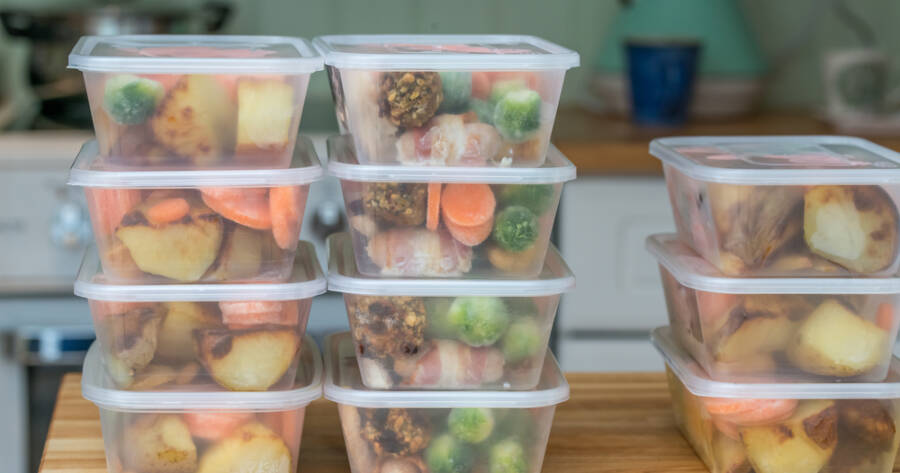Eating well often starts with planning ahead, and meal prepping is one of the most effective ways to stay on track. By organizing your meals in advance, you can save time, reduce food waste, and support better nutritional choices throughout the week. With the help of smart tools, user-friendly apps, and simple prepping techniques, it becomes easier to build balanced meals that fit your lifestyle and health goals.
Why Meal Prepping Makes a Difference
Meal prepping isn’t just about convenience—it’s a system that supports healthy habits. By planning and preparing meals ahead of time, you’re more likely to eat nutritious foods, avoid last-minute takeout, and stick to your personal goals. Prepping also helps with portion control, food budgeting, and reducing food waste.
Whether you’re trying to manage weight, fuel workouts, or just feel more energized, meal prepping gives you control over what goes on your plate. Knowing that you already have healthy options ready in the fridge or freezer makes it easier to stay consistent—even on busy days.
Many nutrition experts agree that consistency is more important than perfection, and meal prepping is one of the best ways to stay on track.
Tools to Make Meal Prepping Easier
To meal prep effectively, a few key tools can help streamline the process. Start with a reliable set of food storage containers—preferably ones that are microwave-safe and have separate compartments. This helps keep meals fresh and organized for several days.
Having a digital kitchen scale and measuring cups can help you portion meals accurately, especially if you’re tracking macros or calories. A good set of sharp knives, a cutting board, and non-stick pans can speed up prep time and reduce cooking stress.
Appliances like slow cookers, pressure cookers, or air fryers are great for batch cooking and minimizing cleanup. You can prepare protein, grains, and vegetables all at once, which makes building balanced meals quicker and easier.
Labeling your meals with the date and contents also helps you stay organized. It reduces the guesswork later in the week and keeps your fridge tidy.
Using Apps to Plan, Track, and Organize
Meal prepping becomes much more manageable with the help of digital apps. There are many available that allow you to plan meals, generate grocery lists, and track your nutritional intake. These tools can remove the mental load of figuring out what to eat every day.
Apps like Mealime and Paprika let you customize weekly menus, filter by dietary needs, and store your favorite recipes. Some even offer barcode scanning to help with grocery shopping and portion tracking.
For those focused on nutrition, apps like MyFitnessPal or Cronometer can help you monitor calorie intake, macronutrient balance, and micronutrients. These apps allow you to log your meals, see patterns over time, and make better choices based on your health goals.
Pairing your meal prep routine with digital planning tools helps you stay organized and reduces the temptation to stray from your plan when life gets busy.
Strategies for Nutritional Balance
When building meals for the week, it’s important to focus on balance. Each meal should ideally include lean protein, complex carbohydrates, healthy fats, and fiber. This combination supports steady energy, fullness, and blood sugar stability throughout the day.
Think of meals as mix-and-match bowls: grilled chicken, roasted sweet potatoes, and steamed broccoli is one example. Another might include quinoa, black beans, avocado, and a handful of leafy greens. Rotating spices and sauces keeps meals interesting without needing to make something new every day.
Batch-cooking ingredients separately and assembling meals as needed can also help avoid repetition fatigue. You can roast a tray of veggies, cook a pot of rice, and grill protein in advance—then combine them in different ways throughout the week.
Snacks are another great item to prep. Chopped veggies, hard-boiled eggs, hummus, or yogurt can help curb hunger and prevent less healthy choices when you’re short on time.
Most importantly, don’t aim for perfection. Allow flexibility in your meal prep routine to accommodate social events, cravings, or days when you simply need a break. Consistency over time is what leads to results—not strict rules.
Meal Prep as a Lifestyle, Not a Chore
Meal prepping like a pro isn’t about spending hours in the kitchen every Sunday—it’s about creating systems that make healthy eating easier. With the right tools, smart planning, and the support of helpful apps, anyone can enjoy better nutrition with less daily effort.
What starts as a way to save time quickly becomes a habit that supports long-term health and well-being. Whether your goal is better energy, weight management, or simply feeling in control of your routine, meal prepping offers a clear path forward. Keep it simple, stay flexible, and enjoy the process of fueling your body well.

